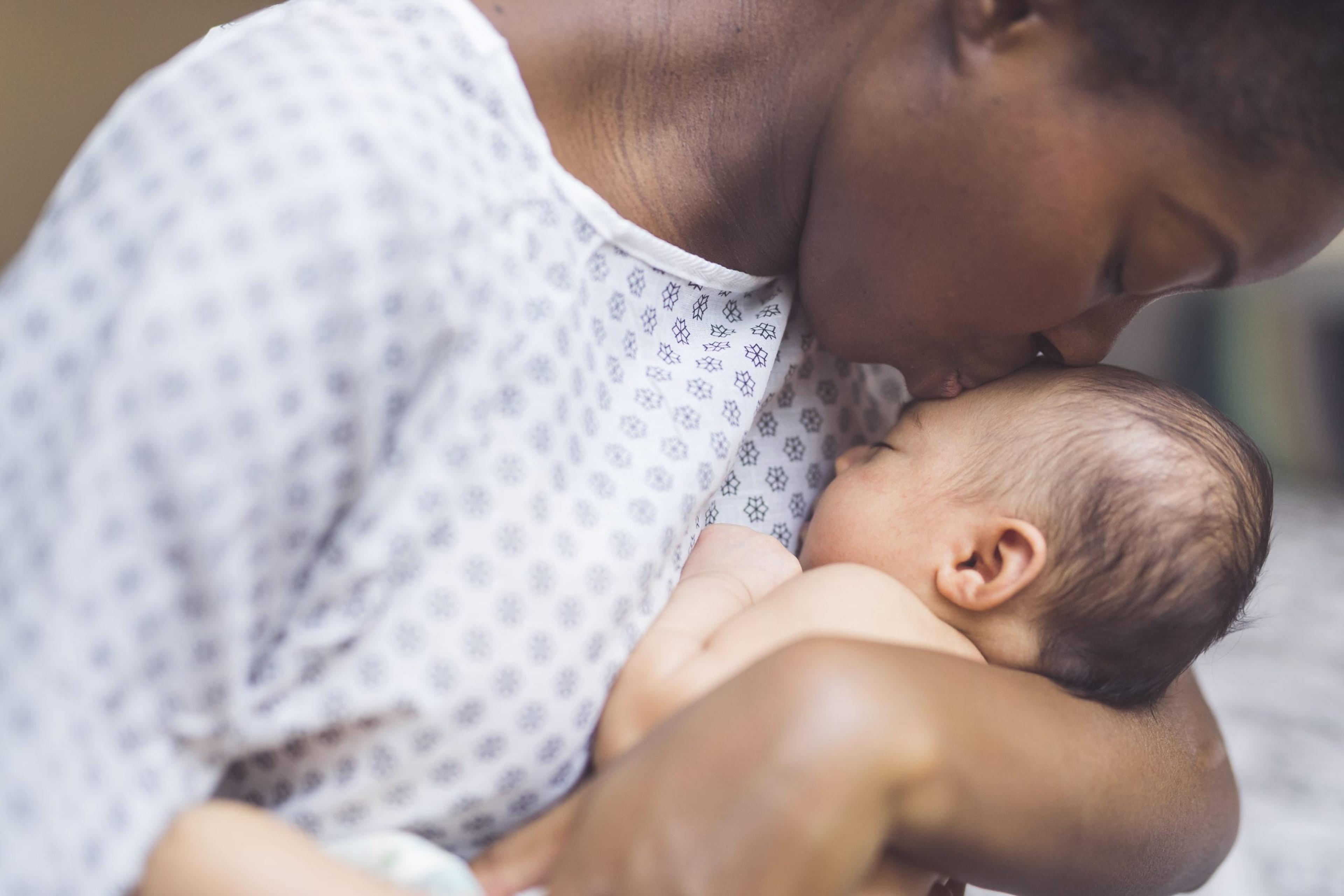Family Health,Children’s Health,Blue Cross Complete,Physical Health,Family Health,Member Education,Maternal Health
Busting the Myths About Smoking and Vaping During Pregnancy

Blue Daily
| 4 min read

Quitting smoking is one of the most important things you can do for your baby and yourself. It’s important to know the real dangers that smoking and vaping can cause. Read on as we bust some common myths about smoking during pregnancy.
Myths vs. facts
Myth: Quitting smoking only helps if you do it before you get pregnant.
Fact: Quitting smoking at any time during your pregnancy can help your baby.
Whether you’re in your first month of pregnancy or your fifth, quitting smoking can lower your chances of having a baby with a low birth weight. In fact, according to Smokefree Women, after just one day of not smoking, your baby will get more oxygen, which will help the lungs develop well.
Myth: There’s nothing wrong with having a small baby.
Fact: The risk of death increases as a baby’s birth weight decreases.
A baby weighing less than 5 pounds 8 ounces at birth is considered a low birth weight baby. A baby with a low birth weight may have trouble eating, breathing, gaining weight and fighting off infections, according to the March of Dimes. In extreme cases, a low birth weight can even cause the death of a newborn.
Myth: Smoking relaxes me, and being relaxed is good for my baby.
Fact: Smoking hurts your body more than it helps.
According to Smokefree Women, smoking actually speeds your heart rate and increases your blood pressure. It also increases the carbon monoxide in your bloodstream, which means your baby gets less oxygen.
Myth: Switching to e-cigarettes during pregnancy is OK.
Fact: E-cigarettes contain some of the same harmful chemicals as regular cigarettes.
E-cigarettes are not safe for pregnant women*. They contain nicotine, which can damage a developing baby’s brain and lungs. They may also contain cancer-causing chemicals.
Myth: My mom smoked when she was pregnant with me and I’m healthy so my baby will be healthy, too.
Fact: Every time you smoke during pregnancy, you’re putting your baby’s health at risk.
Because someone else smoked and had a healthy baby doesn’t mean you will. The good news is that women who quit smoking during pregnancy are less likely to have babies with a low birth weight* than women who continue to smoke.
Myth: Secondhand smoke can’t hurt babies.
Fact: Secondhand smoke is dangerous to unborn babies.
There is no safe amount of secondhand smoke. It harms a baby’s development and, over time, can cause disease or death. According to the Centers for Disease Control and Prevention, women exposed to secondhand smoke during pregnancy are more likely to have newborns with a lower birth weight.
Myth: If I smoke, I should not breastfeed my baby.
Fact: Breast milk is good for your baby, even if you smoke.
Breast milk provides your baby with what he or she needs for healthy growth and development. Mothers who smoke are encouraged to quit smoking. But, even if you can’t quit, breastfeeding is still good for your baby. The American Academy of Pediatrics recommends you take precautions, such as not smoking while breastfeeding your baby and keeping your home and car as smoke-free as possible.
Myth: Nothing can help me quit smoking.
Fact: We have no-cost resources to help pregnant women quit smoking.
Quitting smoking is good for you and your baby. We’re here to help. If you’ve already tried to quit, try again with us. Even reducing the amount you smoke during pregnancy can help your baby’s health. Our no-cost Tobacco Quit Program has special resources for pregnant women. You’ll receive nine counseling calls, one female quit coach and gift card rewards for keeping appointments. All Michigan Tobacco Quitline counseling is confidential with no cost for Blue Cross Complete members. Call the Quitline 24 hours a day, seven days a week at 1-800-QUIT-NOW (784-8669). *Blue Cross Complete doesn’t own or control this site. More from MIBluesPerspectives:
Photo credit: FatCamera





